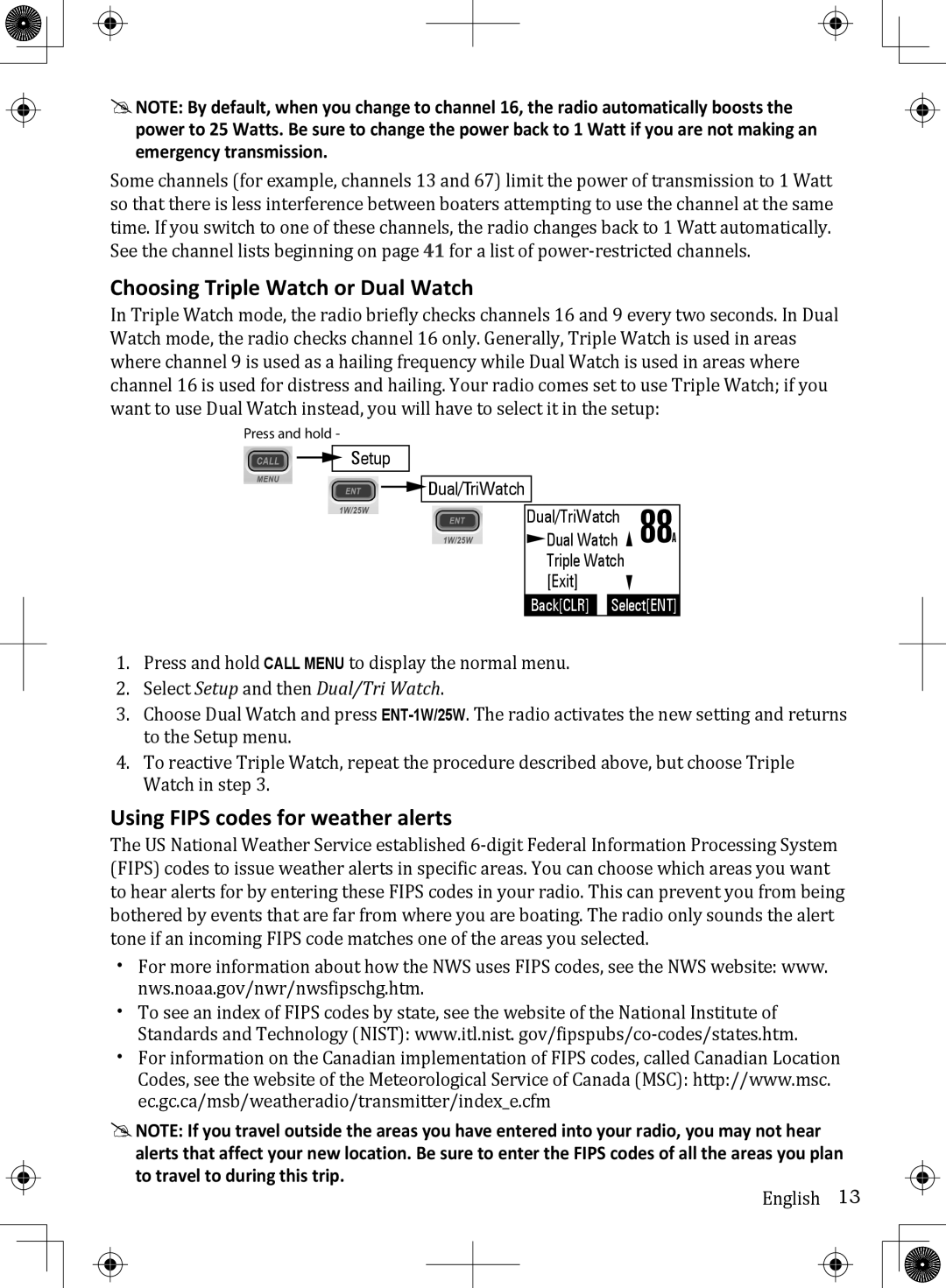
##NOTE: By default, when you change to channel 16, the radio automatically boosts the power to 25 Watts. Be sure to change the power back to 1 Watt if you are not making an emergency transmission.
Some channels (for example, channels 13 and 67) limit the power of transmission to 1 Watt so that there is less interference between boaters attempting to use the channel at the same time. If you switch to one of these channels, the radio changes back to 1 Watt automatically. See the channel lists beginning on page 41 for a list of
Choosing Triple Watch or Dual Watch
In Triple Watch mode, the radio briefly checks channels 16 and 9 every two seconds. In Dual Watch mode, the radio checks channel 16 only. Generally, Triple Watch is used in areas where channel 9 is used as a hailing frequency while Dual Watch is used in areas where channel 16 is used for distress and hailing. Your radio comes set to use Triple Watch; if you want to use Dual Watch instead, you will have to select it in the setup:
Press and hold -
Setup
Dual/TriWatch |
|
| |
|
|
| |
| Dual/TriWatch | 88A | |
|
| Dual Watch | |
|
| Triple Watch |
|
|
| [Exit] |
|
|
|
|
|
Back[CLR] | Select[ENT] |
1.Press and hold CALL MENU to display the normal menu.
2.Select Setup and then Dual/Tri Watch.
3.Choose Dual Watch and press
4.To reactive Triple Watch, repeat the procedure described above, but choose Triple Watch in step 3.
Using FIPS codes for weather alerts
The US National Weather Service established
xx For more information about how the NWS uses FIPS codes, see the NWS website: www. nws.noaa.gov/nwr/nwsfipschg.htm.
xx To see an index of FIPS codes by state, see the website of the National Institute of Standards and Technology (NIST): www.itl.nist.
xx For information on the Canadian implementation of FIPS codes, called Canadian Location Codes, see the website of the Meteorological Service of Canada (MSC): http://www.msc. ec.gc.ca/msb/weatheradio/transmitter/index_e.cfm
##NOTE: If you travel outside the areas you have entered into your radio, you may not hear alerts that affect your new location. Be sure to enter the FIPS codes of all the areas you plan to travel to during this trip.
English 13
